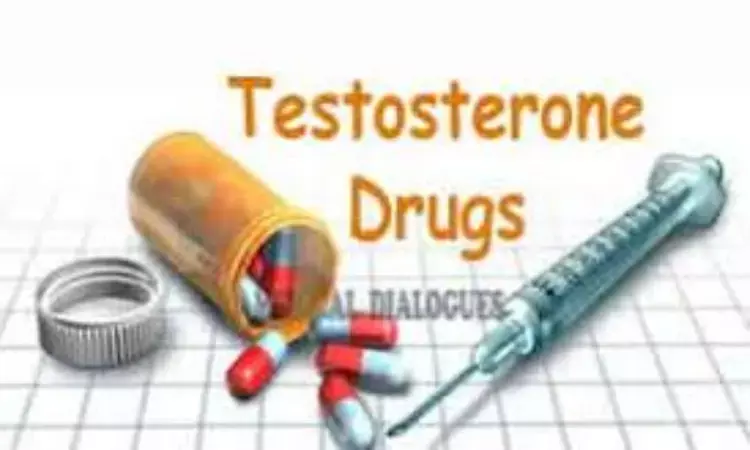- Home
- Medical news & Guidelines
- Anesthesiology
- Cardiology and CTVS
- Critical Care
- Dentistry
- Dermatology
- Diabetes and Endocrinology
- ENT
- Gastroenterology
- Medicine
- Nephrology
- Neurology
- Obstretics-Gynaecology
- Oncology
- Ophthalmology
- Orthopaedics
- Pediatrics-Neonatology
- Psychiatry
- Pulmonology
- Radiology
- Surgery
- Urology
- Laboratory Medicine
- Diet
- Nursing
- Paramedical
- Physiotherapy
- Health news
- Fact Check
- Bone Health Fact Check
- Brain Health Fact Check
- Cancer Related Fact Check
- Child Care Fact Check
- Dental and oral health fact check
- Diabetes and metabolic health fact check
- Diet and Nutrition Fact Check
- Eye and ENT Care Fact Check
- Fitness fact check
- Gut health fact check
- Heart health fact check
- Kidney health fact check
- Medical education fact check
- Men's health fact check
- Respiratory fact check
- Skin and hair care fact check
- Vaccine and Immunization fact check
- Women's health fact check
- AYUSH
- State News
- Andaman and Nicobar Islands
- Andhra Pradesh
- Arunachal Pradesh
- Assam
- Bihar
- Chandigarh
- Chattisgarh
- Dadra and Nagar Haveli
- Daman and Diu
- Delhi
- Goa
- Gujarat
- Haryana
- Himachal Pradesh
- Jammu & Kashmir
- Jharkhand
- Karnataka
- Kerala
- Ladakh
- Lakshadweep
- Madhya Pradesh
- Maharashtra
- Manipur
- Meghalaya
- Mizoram
- Nagaland
- Odisha
- Puducherry
- Punjab
- Rajasthan
- Sikkim
- Tamil Nadu
- Telangana
- Tripura
- Uttar Pradesh
- Uttrakhand
- West Bengal
- Medical Education
- Industry
Testosterone may act as 'brake pedal' on stomach inflammation and stomach cancer

It has been observed that Autoimmune diseases are more common among women compared to women. The reason attributed for higher autoimmune diseases' prevalence in women may be sex-based differences in inflammation.
Researchers at West Virginia University investigated how sex hormones affect stomach inflammation in males and females and have found that androgens--or male sex hormones--may help to keep stomach inflammation in check.
"Stomach cancer is primarily caused by rampant inflammation," said Busada, an assistant professor in the School of Medicine and researcher with the Cancer Institute. "The overarching theme of my lab is to understand what's controlling the balance between a protective immune response, which is just targeting the infection, and a pathogenic immune response, which is like a toddler throwing a temper tantrum and damaging everything. It looks like androgens may be really important in tipping that balance toward a protective response."
The findings of the study have appeared in Gastroenterology.
Busada's study focused on testosterone, the primary male sex hormone.
The study also considered glucocorticoids--steroid hormones that the adrenal glands secrete. Unlike testosterone, glucocorticoids are not sex hormones. Their production doesn't differ substantially between women and men.
Glucocorticoids are "the chief anti-inflammatory hormones that your body produces," Busada said. "You can think of them as the brake pedal to the immune system."
In researching mice without either glucocorticoids or testosterone, Busada, his research partner John Cidlowski--a senior investigator with the National Institutes of Health--and their colleagues observed that males' stomach inflammation increased as much as the females' did.
What's more, when he and his team gave testosterone to the female mice, their inflammation vanished.
"We were able to completely rescue them from their stomach inflammation," Busada said. "We proved that androgens were the hormones giving male mice that double layer of protection from inflammation. In the females, the only anti-inflammatory hormone was glucocorticoids. In males, it could be either glucocorticoids or androgens. This study potentially explains why women have a much higher incidence of autoimmune and chronic inflammatory diseases."
For instance, celiac disease is two to three times as common in women as in men. Multiple sclerosis and rheumatoid arthritis are three times as common. Thyroid problems? Five to eight times.
"Actually, eight out of 10 individuals with autoimmune disease are women," Busada said.
Based on these research findings, clinicians may consider if disruptive glucocorticoid or androgen signaling is contributing to their patients' stomach-inflammatory diseases.
"If someone presents with stomach inflammation, it might be worth it for clinicians to investigate what's going on with their endocrine system," Busada said.
And that's not only the case if the patient is a woman. Even though women are more susceptible to chronic stomach-inflammatory diseases, men are more susceptible to stomach cancer, of which inflammation is the biggest cause.
Worldwide, stomach cancer is the fifth most common form of cancer and the third leading cause of cancer deaths.
"Persistent, smoldering inflammation over the course of many, many years is the fertile ground for stomach cancer to grow." Busada said. "It's an important, and understudied, human health issue."
"These findings may help us understand how inflammation promotes cancer development, but we can't make any direct inferences about stomach cancer from this body of work," he said. "That's the direction we're moving in, though. We're currently studying how sex affects carcinogenesis using an actual cancer model."
https://www.gastrojournal.org/article/S0016-5085(21)00750-2/pdf
Hina Zahid Joined Medical Dialogue in 2017 with a passion to work as a Reporter. She coordinates with various national and international journals and association and covers all the stories related to Medical guidelines, Medical Journals, rare medical surgeries as well as all the updates in the medical field. Email: editorial@medicaldialogues.in. Contact no. 011-43720751
Dr Kamal Kant Kohli-MBBS, DTCD- a chest specialist with more than 30 years of practice and a flair for writing clinical articles, Dr Kamal Kant Kohli joined Medical Dialogues as a Chief Editor of Medical News. Besides writing articles, as an editor, he proofreads and verifies all the medical content published on Medical Dialogues including those coming from journals, studies,medical conferences,guidelines etc. Email: drkohli@medicaldialogues.in. Contact no. 011-43720751


